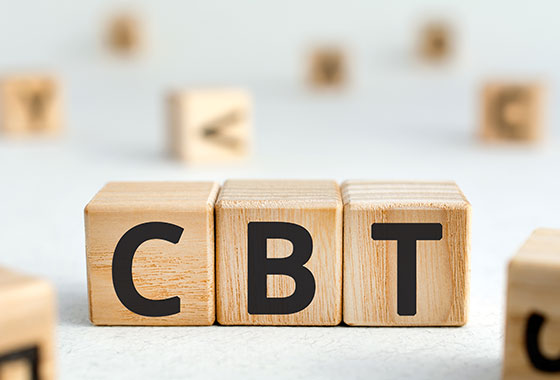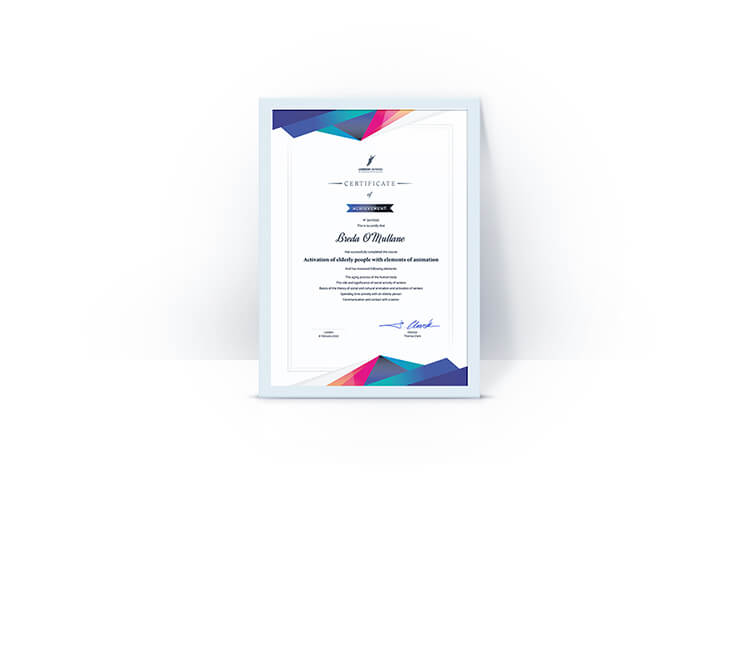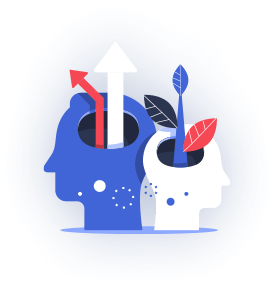Cognitive behavioral therapy (CBT)
Cognitive behavioral therapy (CBT) is a popular method of treating mental disorders such as depression, panic attacks, obsessive-compulsive disorders, social anxiety, schizophrenia, post-traumatic stress, and eating disorders. Some of these are diseases related to contemporary civilization, that many of us struggle with. Very often these problems affect our loved ones whom we want to help, but we are unaware of how to. More than 7,000 people have completed the course, with an average rating of 4.98/5.0!

Online course description
This course is extremely useful in these situations. It will not solve mental disorders, but it will guide you how to deal with them. It will also help answer questions as to whether cognitive-behavioral methods will eliminate the problem. The course is a concise compendium of knowledge about this constantly developing and increasingly popular method. People who are interested in human psyche and psychology will most certainly find a lot of interesting information within it.
The certificate we issue does not authorize any practice of a profession, it does not replace a university diploma or other documents required by law in order to practice the profession. It does, however, confirm the fulfilment of the knowledge and skills, as well as working on one’s own development, which in itself is of value and may constitute a competitive advantage on the labour market.
More than 7,000 people have completed the course, with an average rating of 4.98/5.0!
What you will learn
- how to recognize negative automatic thoughts and their impact on human life
- about the process of constructing reality by assigning meanings to stimuli coming from the environment
- cognitive distortions
- about the process of cognitive-behavioral therapy
- basic CBT techniques
- about the use and effectiveness of CBT in the treatment of depression, anxiety, post-traumatic stress and schizophrenia.
Table of contents
- Module 1 | Cognitive Behavioral Therapy - theoretical assumptions
- Module 2 | Application and effectiveness of cognitive-behavioral therapy
- Module 3 | Therapeutic process of cognitive-behavioral therapy
- Module 4 | Therapeutic techniques used in cognitive-behavioral therapy
- Module 5 | Cognitive-behavioral therapy in treating depression
- Module 6 | Cognitive-behavioral therapy in treating anxiety
- Module 7 | Cognitive-behavioral therapy for the treatment of post-traumatic stress disorder
- Module 8 | Cognitive behavioral therapy for treating schizophrenia
Certificate
After passing online tests, you will immediately receive an online certificate.
To check more details please click here.

Related online courses
Solution-focused (brief) therapy
Anyone who dreams of a career as a therapist, specialising in short-term therapy, should know the basics of SFBT. The knowledge on SFT learnt in this course can be applied within jobs of teachers, pedagogues, psychologists, therapists as well as all individuals interested in using their own potential to introduce positive changes in their lives. More than 5,000 people have completed the course, with an average rating of 4.92/5.0!
Personal development
What is personal development? For some people, this term will mean learning foreign languages, for others, a promotion at work, or better communication with the environment and distancing yourself from the world. Each of us equates personal development to something else and this is not a mistake. Generally speaking, personal development is inseparable from the principle of change and getting better. To be able to progress, you need to start a process that will lead to positive change and, consequently, success. This is because personal development is essentially a process and requires action to be taken, thanks to which we overcome internal barriers and overcome our weaknesses.
Emotion regulation course
Thanks to emotion regulation training, you will lessen your emotional suffering as well as learn to change emotions in a way, so they are less intense and even more pleasant. #regulating emotions #learning emotional regulation #intelligence emotional




